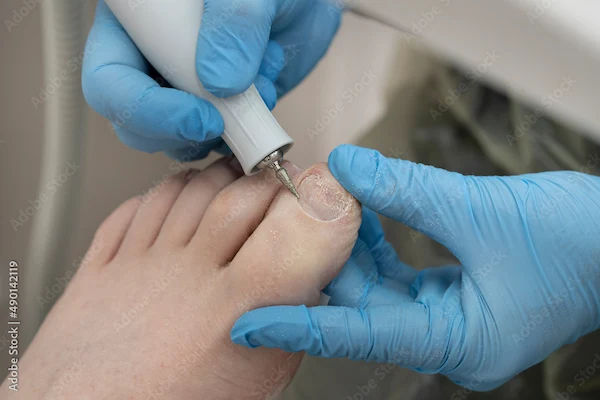How to Reduce Fungal Infection?
Learn effective strategies to reduce your risk of fungal infections of the skin, nails, and body. Discover tips on hygiene, clothing, and when to see a doctor.

Written by Dr.Sonia Bhatt
Last updated on 3rd Jul, 2025

Fungal infections are common and can affect anyone, causing discomfort and sometimes serious health issues if left untreated. The good news is that most fungal infections are preventable and manageable with the right care. In this article, we’ll explain what fungal infections are, their causes, symptoms, and most importantly—how you can reduce your risk of getting them.
What Are Fungal Infections?
Fungal infections occur when harmful fungi invade the skin, nails, or other parts of the body. Some common types include:
Athlete’s foot: It affects the feet, leading to itching and peeling skin.
Ringworm: It presents as a circular, red rash on the skin or scalp.
Yeast infections: It often develops in moist areas like the mouth (thrush) or the genital region.
Nail fungus: It causes nails to become thick, discolored, and brittle.
Fungi thrive in warm, moist environments, which is why infections are more common in sweaty or damp areas of the body.
Common Symptoms of Fungal Infections
Depending on the type of infection, symptoms may include:
Itching, redness, or irritation
Peeling or cracking skin
White patches (in oral thrush)
Thick, discolored nails
Burning sensation (in yeast infections)
If you notice any of these signs, it’s best to take action early to prevent the infection from worsening.
Consult Top Doctors for Your Symptoms
What Causes Fungal Infections?
Several factors increase the risk of fungal infections:
Poor Hygiene: Inadequate skin cleanliness and dryness promote fungal proliferation.
Excessive Sweating: Moisture from sweat creates favorable conditions for fungal infections, especially on feet and in skin folds.
Non-Breathable Clothing: Tight synthetic fabrics trap moisture, fostering fungal growth.
Barefoot Walking in Public Areas: Public environments like gyms and pools can expose individuals to fungi.
Weakened Immune System: Compromised immunity due to conditions or medications increases susceptibility to fungal infections.
How to Reduce the Risk of Fungal Infections?
The ways to reduce the risk of fungal infections are as follows:
1. Keep Skin Clean and Dry: Wash regularly, dry thoroughly (especially in folds), and use antifungal powders if needed.
2. Wear Breathable Clothing: Opt for cotton or moisture-wicking fabrics and avoid tight clothes; change socks and underwear daily.
3. Practice Good Foot Hygiene: Wear flip-flops in public areas, air out shoes, and trim nails straight across.
4. Boost Your Immune System: Eat a balanced diet with probiotics, stay hydrated, sleep well, and manage chronic conditions.
5. Avoid Sharing Personal Items: Don't share towels, razors, or nail clippers, and disinfect shared surfaces.
6. Use Antifungal Treatments When Needed: Apply over-the-counter creams for mild infections and see a doctor for persistent issues.
When to See a Doctor?
Most fungal infections can be treated at home, but seek medical help if:
The infection spreads or doesn’t improve.
You have diabetes or a weakened immune system.
The infection causes severe pain, swelling, or fever.
Conclusion
Fungal infections are annoying but preventable with good hygiene and smart habits. By keeping your skin dry, wearing breathable clothes, and maintaining a healthy lifestyle, you can significantly reduce your risk. If you’re struggling with recurring infections, don’t hesitate to consult a doctor. You can easily book a dermatologist consultation or order antifungal treatments through Apollo 24|7 for quick and reliable care. Stay clean, stay dry, and stay fungus-free!
Consult Top General Physicians
Consult Top Doctors for Your Symptoms

Dr. D Bhanu Prakash
General Practitioner
10 Years • MBBS, AFIH, Advanced certificate in critical care medicine, Fellowship in critical care medicine
Hyderabad
Apollo 24|7 Clinic, Hyderabad

Dr D M Karthik
General Practitioner
4 Years • MBBS, Fellowship in Diabetes Mellitus, Advance certificate in Diabetes Mellitus, Derma Nutrition Certification
Visakhapatnam
Apollo 24|7 Clinic - Andhra Pradesh, Visakhapatnam

Dr. M L Ezhilarasan
General Practitioner
6 Years • MBBS
Visakhapatnam
Apollo 24|7 Clinic - Andhra Pradesh, Visakhapatnam

Dr. Mohammed Kamran
General Practitioner
5 Years • MBBS, FIDM
Nashik
Apollo 24|7 Clinic - Maharashtra, Nashik

Dr. Vasanthasree Nair
General Practitioner
15 Years • MBBS
Angamaly
Apollo 24|7 Clinic - Kerala, Angamaly
(425+ Patients)
Consult Top General Physicians

Dr. D Bhanu Prakash
General Practitioner
10 Years • MBBS, AFIH, Advanced certificate in critical care medicine, Fellowship in critical care medicine
Hyderabad
Apollo 24|7 Clinic, Hyderabad

Dr D M Karthik
General Practitioner
4 Years • MBBS, Fellowship in Diabetes Mellitus, Advance certificate in Diabetes Mellitus, Derma Nutrition Certification
Visakhapatnam
Apollo 24|7 Clinic - Andhra Pradesh, Visakhapatnam

Dr. M L Ezhilarasan
General Practitioner
6 Years • MBBS
Visakhapatnam
Apollo 24|7 Clinic - Andhra Pradesh, Visakhapatnam

Dr. Mohammed Kamran
General Practitioner
5 Years • MBBS, FIDM
Nashik
Apollo 24|7 Clinic - Maharashtra, Nashik

Dr. Vasanthasree Nair
General Practitioner
15 Years • MBBS
Angamaly
Apollo 24|7 Clinic - Kerala, Angamaly
(425+ Patients)